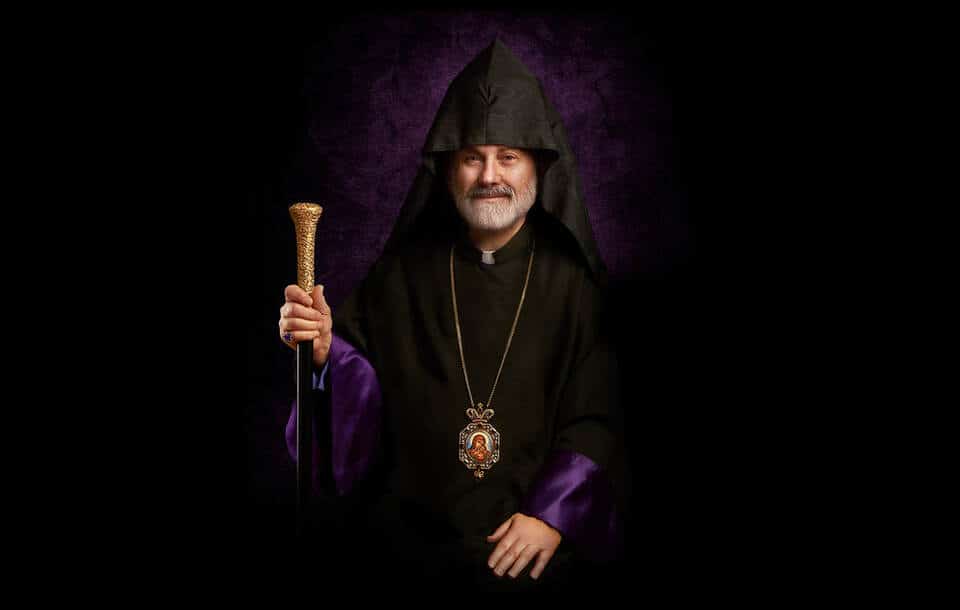Today, on the second Sunday following the Nativity of our Lord Jesus Christ, the Gospel reading is from St. John 6:15-21. The Evangelist tells us that when Jesus realizes that the people were about to come and take Him by force to make Him king, He withdrew to the mountain by Himself. The same evening the disciples, by themselves, sailed by boat to Capernaum and on their way were threatened by a heavy storm. The terror of the expert sailors doubled when they saw that Jesus was coming toward them, walking in the middle of the storm, and addressing them: “It is I; do not be afraid.” And while they wanted to bring Him into the boat, immediately the boat arrived on the shore to which they were going.
In order to have the full scope and to understand the magnitude of this passage, it is necessary to be familiar with the previous verses. This episode follows the miracle of the feeding of the five thousand in the desert. There was no reason that the people, whose ancestors were fed in the desert for forty years, now should not believe that this new Rabbi and Wonder-worker was the expected king and the one to fulfill the dreams of their nation.
Jesus avoided this baseless expectation. We know that at the end of His earthly mission, when He was asked by Pontius Pilate whether He was the king of Jews, He had just answered “You have said so” (Lk 23:3).
Having this background, now let us share a few thoughts from today’s Gospel reading.
- Jesus, as soon as He realizes the intention of the crowd, retreats to the mountain by Himself. As perfect God and perfect man, Jesus always teaches us the best way to speak, the best way to act and to behave. As human beings, we need always to reenergize our inner vitality by retreating into solitude. The ideal source of this refreshment is the source of life and energy, God the Creator.
To be with our Heavenly Father does not only renew our exhaustion, but also leads us to take the right actions. There was nothing wrong in welcoming the good intentions of the people; yet Jesus, having taught us, “Thy will be done,” expressed that His actions were always in line with Father’s will. What seems good superfluously is not necessarily right. The great tempter convinced our fore-parents that they would be immortals, and yet they lost the privileges which they had. It is always advisable, especially in major decisions, to ask and enjoy the benefit of the One who is the ultimate Good, as St James says, “Every generous act of giving, with every perfect gift is from above, coming down from the Father of lights” (James 1:17). - As much as the storm was frightening, in darkness, witnessing that out of nowhere Jesus was walking toward them on the water was indeed far more terrifying. Nevertheless, He pacified them by saying, “It is I; do not be afraid.” What a powerful statement! Yes, it was that “I” who out of love created this most wonderful universe. It was that “I” who introduced Himself to Moses, saying, “I am.” It was that immeasurable and uncontainable “I” that laid in the manger, and it is the same “I” who promised to be with us. Whenever we are caught in the stormy turmoil of life’s issues, emotions, or failure, He will wave away our fear. If we have lost our mind, He will restore the clear-view of our judgment. If we have lost our hope, He will shine a new ray of faith. St John assures us that “the Light shines in the darkness, and the darkness did not overcome it” (Jn 1:5).
- The Evangelist concludes this passage by saying that when the disciples wanted to take Him into the boat, immediately the boat arrived at the land toward which they were going. It seems a little bit awkward. The boat was on verge of peril and yet within a few minutes it arrived at its destination. Yes, that is the beauty of the mystery. When we walk with God, whatever seems to be impossible turns out to be possible (Mt 19.:26), whatever seems to be unbearable turns out to be bearable, and whatever seems to be heavy turns ought to be light, for He promised in advance, “my yoke is easy, and my burden is light” (Mt 11:29).
On a personal note, when we come out of the storm and get to our destination, let us be grateful. There are many anecdotes that depict the weakness of our nature as we pass through difficult times. A short and pragmatic one is the following: a young gentleman who was delayed for a critical appointment on his way promises to God he will make a substantial gift if he could find parking space in front of his destination. To his surprise, he finds an ideal free spot. He immediately says, “Never mind, God. Don’t worry, I already got a space.” The lesson is that a truly grateful heart renders thanks because the person understands that all along, it is God who finds us a parking spot, who guides us in rough weather, and who ultimately brings us from darkness into wondrous light.
Having this wonderful spiritual nourishment derived from the Gospel of St. John, let us cross the sea of our life both in times of peace and in times of turmoil, always with Jesus as the One who pacifies every situation, who watches us day and night, and who appears on the horizon to save us and to lead us to His heavenly harbor. Let us thank Him now and forever. Amen.

